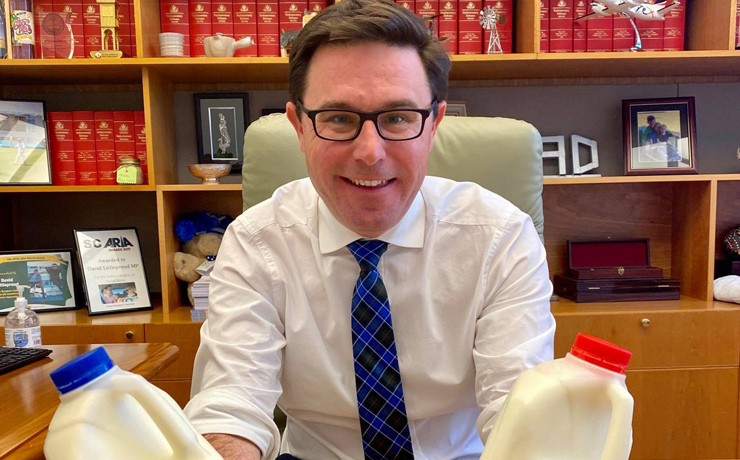
August 26, 2020
Deals struck between supermarkets and the farmers who supply them will be put under the microscope by the Australian Competition and Consumer Commission from Monday.
The ACCC will begin a three-month probe into the domestic fresh food and dairy supply chain, from the farmgate through to supermarket, and consider whether supermarkets should face tougher regulations.
“Unfortunately, not all interactions between farmers and the major supermarkets are conducted fairly and in good faith and there are bargaining imbalances and other serious issues that need to be looked at,” Agriculture Minister and Member for Maranoa David Littleproud said on Wednesday.
He said the ACCC would examine the supply chain for meat (beef, lamb, pork, chicken), eggs, seafood, fruit and vegetables.
Separately, it would also examine whether the new Dairy Code should be extended across the entire domestic supply chain to include retailers. Currently, the Code extends only as far as dairy processors.
The inquiry, initiated by Mr Littleproud and Treasurer Josh Frydenberg, will take a broad look at trading practices throughout supply chains, including the relationships between farmers, processors and retailers.
The ACCC will review the extent to which potential bargaining power imbalances in these relationships can adversely impact the efficient operation of markets, and the role of market structures and regulations in delivering efficient and equitable outcomes.
“The Nationals fought hard to deliver this important inquiry in response to long-held concerns about bargaining imbalances that currently exist and the misuse, and in some cases the abuse, of this power by some sections of the fresh food supply chain,” Mr Littleproud said.
“There are concerns that once farm produce is harvested or processed and sent off to market, producers have little bargaining power and are at the mercy of the powerful supermarkets when it comes to the price they are paid.
“This inquiry will provide Australian farmers across all food producing sectors with an opportunity to submit evidence, raise concerns and share their own experiences in the domestic marketplace.
“I strongly encourage farmers and other businesses across the supply chain to take this opportunity, while it’s available, and contribute to this important inquiry.
“We want to ensure we have the right policies in place – but to do that, we need industry to speak up and tell us what’s really going on.”
Mr Littleproud said the ACCC had guaranteed the inquiry would accept confidential submissions so that farmers could provide evidence of harmful practices without the fear of punishment and retribution by the major supermarkets.
“This inquiry is not designed to regulate food prices. Instead, it will identify problems and recommend policy options – including a possible all-encompassing Agricultural Code – if appropriate,” he said.
ACCC Deputy Chair Mick Keogh said the inquiry provided an opportunity to take a broad look at perishable agricultural supply chains in Australia “utilising knowledge we have gained in working across a range of agricultural issues”.
“In recent years the ACCC has conducted detailed market studies in the beef cattle, horticulture, dairy and winegrape sectors, and has continuing responsibilities associated with the Horticulture and Dairy Codes, as well as the Food and Grocery Code,” Mr Keogh said.
The ACCC will report back to the Federal Government by November 30.
* * *

The Queensland Dairyfarmers Organisation welcomed the ACCC inquiry.
QDO president Brian Tessmann said the power imbalance that occurred between supermarkets and the processors of perishable goods was real “and has been going on for decades”.
“When your product has a short shelf life, retailers have you over a barrel,” he said.
“You can’t hold on to it and wait to get a better price, and you can’t dump it [because of EPA laws].
“So whether the product is sitting in your paddock or is packed up in a processing plant, the power is not with you. It’s with the retailers responsible for getting your product into the hands of the consumer.
“When you put it like that it makes no sense that supermarkets are not being held accountable.
“Processors and farmers have had their relationship put under a microscope for the betterment of the whole [dairy] industry. The Code provides for greater accountability and transparency which ultimately should make it fairer for all.
“We hope that this review leads to the inclusion of supermarkets in the next round of reviews of the Mandatory Dairy Code of Conduct and thank Minister Littleproud for pushing for more reform of the supply chains.
“This review is very welcome but this time we want to see real change to address the clear imbalance of power in the agricultural supply chain.”























